What are Keywords & How to Do Effective Keyword Research?
Posted on: March 31, 2022 11:22 AM
Keywords are words and terms that people type into search engines to search for something online. In other words, keywords act as a channel to connect your website with the intended audience.
Keywords are one of the chief components of Search Engine Optimization (SEO). Proper utilization of SEO keywords helps the website rank higher & outsmart the competition.
Intent-based keywords indicate the searcher’s intention for the search. These keywords enable you to grasp the searcher’s needs and relate them with your content. This way, you can produce more conversion-related content, as these keywords are vital for conversion.
There are 4 types of keywords based on intent;
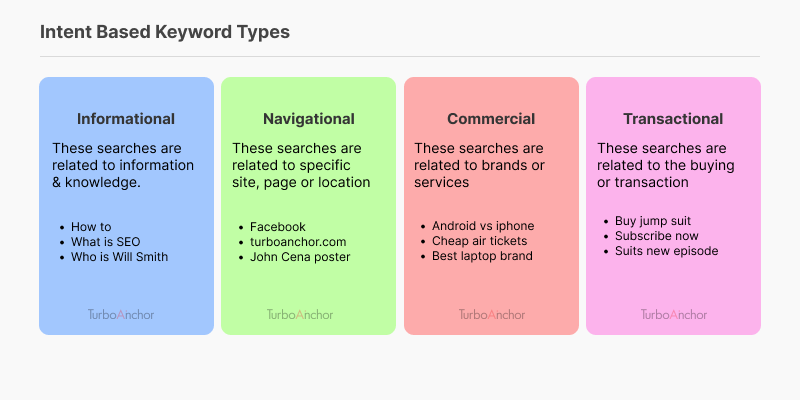
Intent-based keyword alignment can help with the proper segmentation of keywords at each marketing stage in the funnel. This not only helps with keyword management but also assists in achieving the marketing goals.
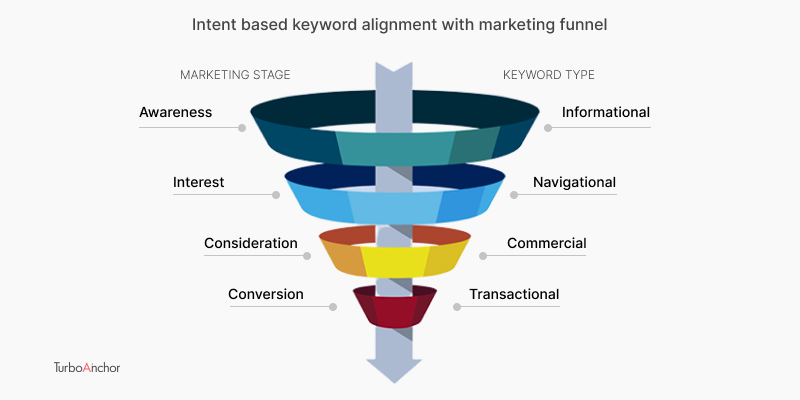
Short tail keywords are among the most challenging ones to rank for in SEO; they constitute not more than three words. Short keywords are also very popular as they yield the highest amount of searches per month.
For instance, “Real Estate” is short and crisp and has a lot of search volume but is difficult to rank in SERP.
In contrast, long-tail keywords are specific and longer. Most long-tail keywords produce limited search volume and normally have a higher conversion rate.
Moreover, they have less competition, their specific nature makes them easier to address, and finally, these keywords are found in substantial numbers, which can help increase the search traffic relatively quicker.
For instance, “Seattle Washington Real Estate” has a relatively lower search volume & is easier to rank in SERP.
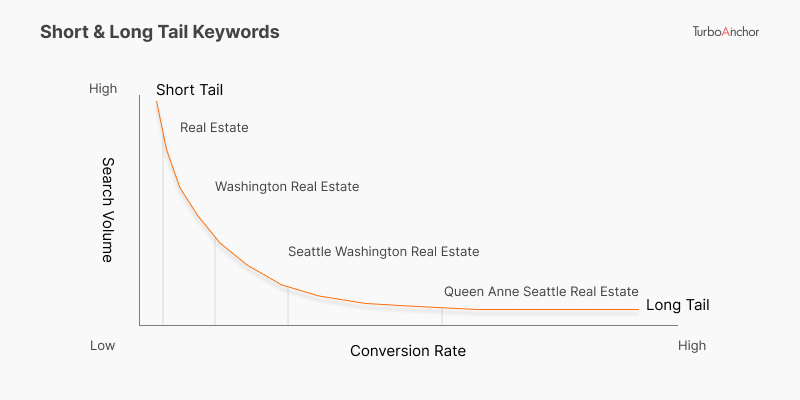
Latent Semantic Indexing or LSI keywords that are related to the primary keyword. They add wider reach to content and attach more context to it for the search engines and searchers to better comprehend the content.
The even inclusion of LSI keywords across the text helps rank keywords & boost the traffic to any website.
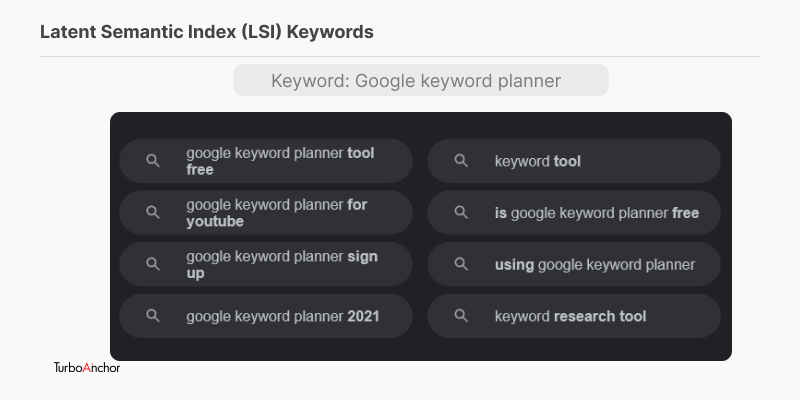
Reactive/short lived keywords are derived from the latest trends. These keywords may have witnessed promotion recently in the media. For instance, it may have to do with a movie or a new smartphone model launch.
These keywords gain traction as long as the hype is in full swing. Hence if you produce content incorporating these keywords, it may retain an audience for a short time.
On the other hand, the traffic to your website may also soar when the keyword is trending. For example, below is the interest over time graph of “Football Worldcup” which shows the sudden spikes as a result of an event or reaction.
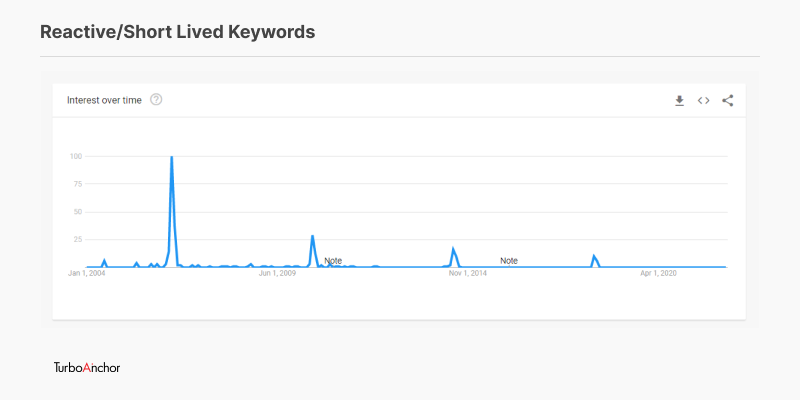
Evergreen keywords remain relevant and sustainable for longer periods, and the audience accesses the evergreen content much beyond the date when it was published. Evergreen content normally includes news articles, statistical reports, and articles about popular fads and trends.
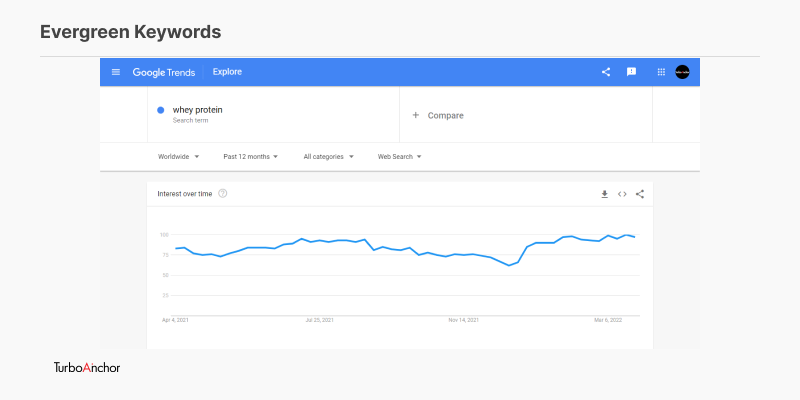
Product-defining keywords offer the most appropriate description of your products. These keywords are typed in the search engine to inquire about information about specific products and services, and these keywords tend to be extremely precise.
Customer-defining keywords focus on your company’s intended customer base and are very target specific. In addition, these keywords highlight customers’ requirements and capture their interest.
These keywords assist searchers in identifying your content by prioritizing your location. These keyword strategies are suitable for Local SEO of small businesses, especially those depending on home deliveries and foot traffic. For instance, the keywords “vitamin and supplements stores in London”.
Google paid campaigns are one of the most effective tools to attract an intent-based audience. The keyword selection in this case is based on two main factors, audience reach & keyword relevance, & each can greatly impact ads campaigns. On the same basis, they are divided into 5 main match types.
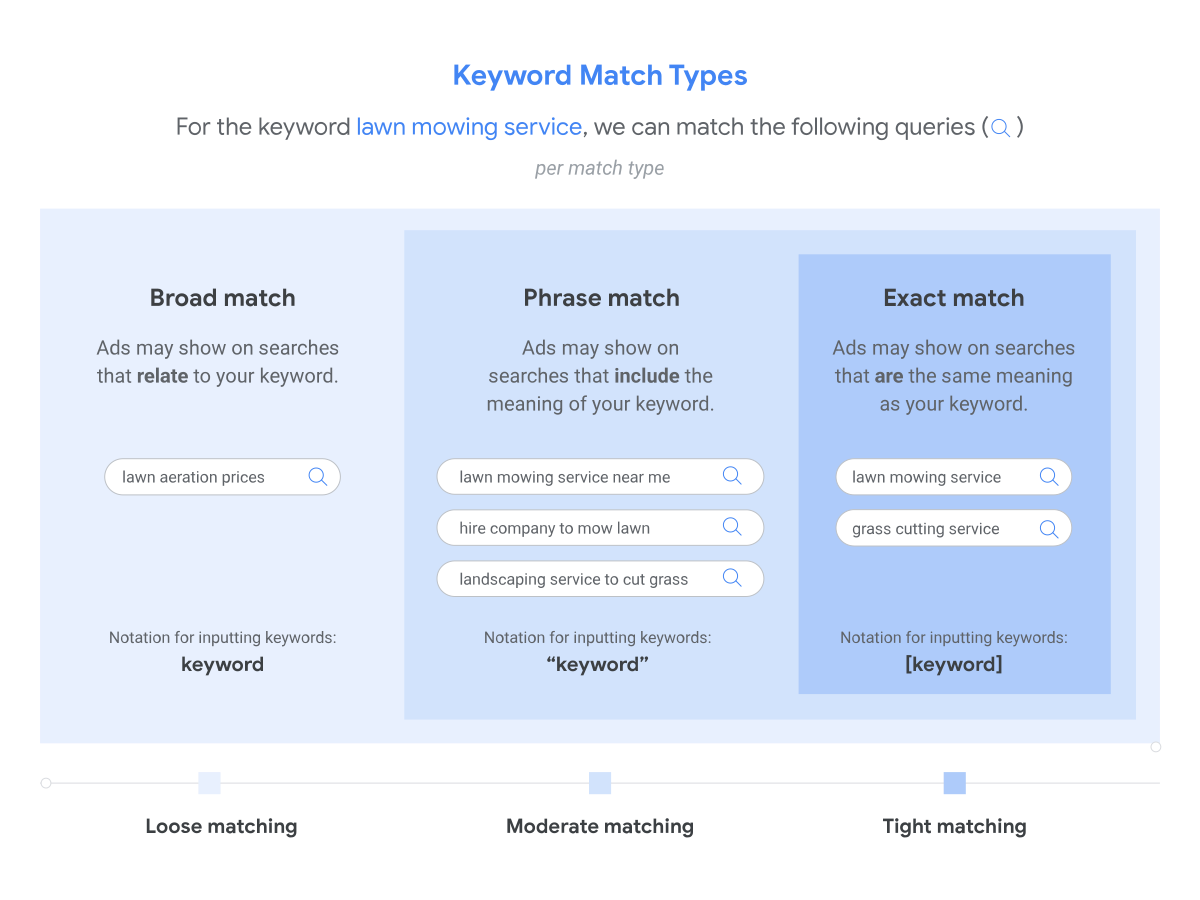
You may also like to read: What are Google Ads Extensions & What are Its Types?
Keyword research is a core element of search engine optimization or SEO. It is a mechanism that allows you to identify trending and popular search terms that a target audience is searching for in the search engines.
Similarly, it enables content creators to deliberately embed those words across their content, so their content remains relevant and is easily ranked at the top on the search engine results page (SERP).
There are 3 main elements of keyword research for SERP rankings.
After the Google BURT updates search intent & relevance have become the key factors for ranking. This makes sense as these factors are the basics of understanding the query in day-to-day life as well. Unless the intent behind any question is not clear the answer can not be effective.
SEO keywords relevance is crucial for the success of any marketing campaign, & therefore content owners must ensure that their content is relevant to the topic.
Keyword volume enables you to understand how many searches are being run for a specific keyword. It helps prioritize the keywords implementation in our content, higher volume keywords are more valuable than others. Because they have more traffic potential than keywords with lesser volume.
Good keyword research can help with creating well-optimized content. Posting regular high-quality content enriched with value for the reader adds authority to your website. Search engines like Google consider website authority as one of the ranking factors.
Keyword research is vital to the success of any online business. It’s a vital part of any marketing strategy. It helps identify the best keywords to use in content across different channels like websites, social media pages, marketing campaigns & so on.
Keyword research highlights what people are searching for, contrary to what your perception of their searching might be thus enabling you to target the money keywords. Search engines can only rank you if they understand your business, and using keywords on your website means search engines know your business and rank it accordingly.
Proper keyword research is instrumental in driving traffic to your website, resulting in increased conversion. Most importantly, understanding keywords allow you to effectively comprehend your business and brand and formulate marketing strategies in tandem with them.
Research: According to Ahrefs’ study of over 1 billion pages 90.63% of web pages do not get organic search traffic from Google.
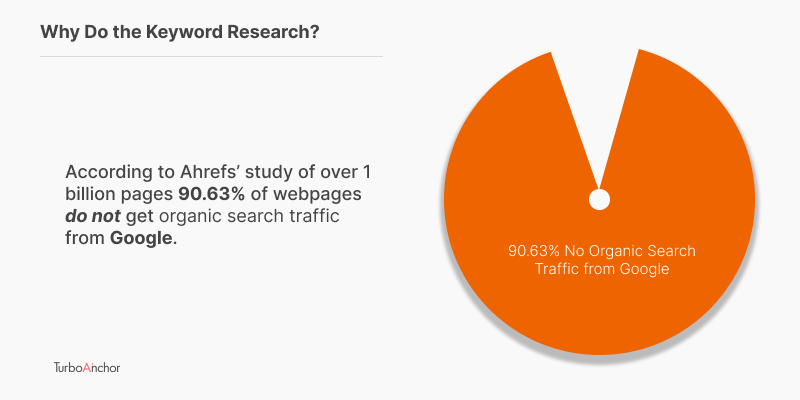
Learning how to conduct keyword research is as important as knowing your target audience. Here is a basic wireframe that will help you conduct effective keyword research.
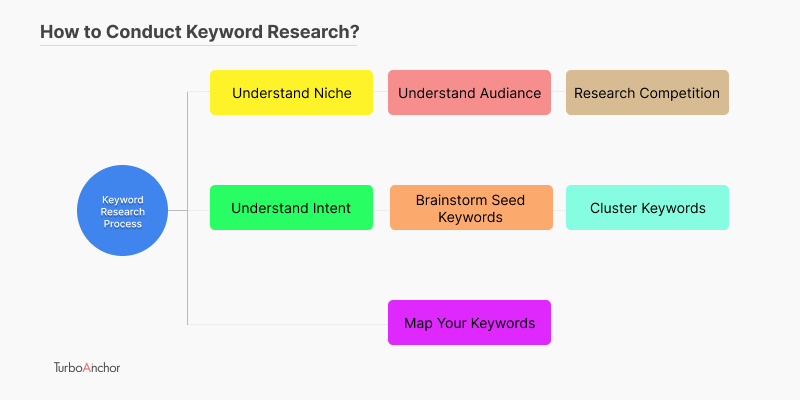
If you are still grappling with conducting keyword research, it is advisable to take advantage of some extremely effective keyword research tools.
Research tools allow for competitive evaluation of keywords, help you devise personalized keywords, enable appropriate SEO development, and enhance your SEO metrics.
We have listed some of the most commonly used SEO tools for keyword research.
Digital transformation has accelerated the digital marketing industry. Digital marketing is crucial because it connects customers with businesses mainly through SEO and social media marketing.
Subsequently, fruitful SEO practices such as apt keyword research and its proper use are essential to boost your website’s visibility online, increasing traffic and offering a better opportunity of selling goods and services to a vast number of people.